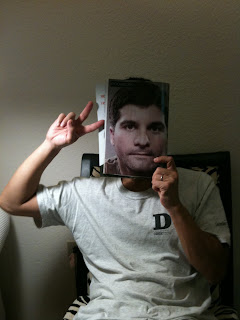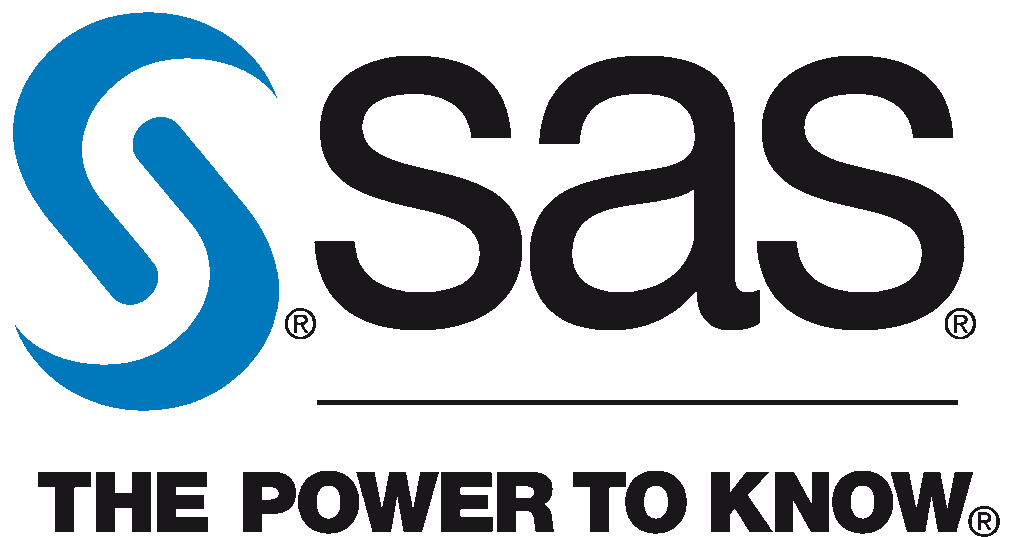 때는 2005년도. 워튼 스쿨 MBA 학생이었던 Omar Hamoui는 필라델피아 UPenn 캠퍼스의 끝자락에 있는 학생용 기숙사/아파트에서 학교를 다니는 동안 fotochatter라는 모바일 사진 공유 사이트를 창업하기 위해서 낮에는 공부하고 밤에는 열심히 컴퓨터에 매달려서 작업을 하고 있었다. 대략적인 서비스의 뼈대는 만들었는데 역시 가장 큰 어려움은 마케팅이었다. 아무도 모르는 갓 시작한 서비스를 어떻게 미래의 고객들한테 알리는가가 가장 큰 숙제였다. 그것도 이건 인터넷 서비스가 아니라 모바일 서비스였다. 모바일서비스를 온라인 상에서 광고하는건 약간 실용적이지 못할뿐더러 엄청나게 비싼 방법이었다.
때는 2005년도. 워튼 스쿨 MBA 학생이었던 Omar Hamoui는 필라델피아 UPenn 캠퍼스의 끝자락에 있는 학생용 기숙사/아파트에서 학교를 다니는 동안 fotochatter라는 모바일 사진 공유 사이트를 창업하기 위해서 낮에는 공부하고 밤에는 열심히 컴퓨터에 매달려서 작업을 하고 있었다. 대략적인 서비스의 뼈대는 만들었는데 역시 가장 큰 어려움은 마케팅이었다. 아무도 모르는 갓 시작한 서비스를 어떻게 미래의 고객들한테 알리는가가 가장 큰 숙제였다. 그것도 이건 인터넷 서비스가 아니라 모바일 서비스였다. 모바일서비스를 온라인 상에서 광고하는건 약간 실용적이지 못할뿐더러 엄청나게 비싼 방법이었다.
MBA 수업에서 배운 pricing 방법들을 사용해서 대략적인 계산을 해보니 온라인 광고를 하면 모바일 유저 한명을 등록시키는데 드는 비용은 무려 $30이라는 숫자가 나왔다. 돈도 없고 방법도 효과적이지 못하고 이건 좀 아니라는 생각을 그는 했다. 그대신 그 당시만 해도 생소하고 이제 걸음마 단계인 모바일 웹 광고 시장 쪽으로 Omar는 눈을 돌렸다. 모바일 웹 광고 비용은 1센트 CPC (Cost Per Click – 유저들이 모바일 웹 브라우저에서 광고를 한번 클릭할때마다 fotochatter와 같은 광고주가 내야하는 비용) 밖에 안했고 초기 테스트 결과는 훨씬 효과적이었다. 광고를 클릭하는 유저 중 10%가 fotochatter 서비스에 등록을 하였고, 그 결과로 인해서 순수 온라인 광고와 비교해 봤을때 유저 한명을 등록시키는데 들어가는 비용이 $30에서 10 센트로 드라마틱하게 절감되었다. 그는 이러한 시행착오를 바탕으로 앞으로 다가올 모바일 광고 시장의 가능성을 몸소 경험할 수 있었고, 잘은 모르겠지만 뭔가를 발견하였다는걸 직감적으로 알게 되었다.
2006년도 1월 Omar는 나랑 비슷하게 (아 근데 결과는 비슷하지가 않다 ㅋㅋ) 워튼 MBA 프로그램을 중퇴하고 AdMob이라는 모바일 광고 플랫폼 서비스를 창업하였다. AdMob은 우리가 잘 아는 구글의 광고 플랫폼이자 cash cow인 애드센스와 크게 다르지 않다. 다만 AdMob은 구글 애드센스가 웹에서 정평한 온라인 광고를 모바일 영역에 적용하는 서비스이다. 광고주들은 돈을 내고, 퍼블리셔들은 그 광고를 본인들의 모바일 사이트나 아이폰 앱과 같은 모바일 애플리케이션에 집어넣어서 유저들에게 노출을 시키는거다. 유저들이 광고를 클릭하거나 서비스에 등록할때마다 퍼블리셔들과 AdMob은 광고주들이 지불한 광고비용을 나누어 먹는 그러한 기본적인 시스템이다.
창업 후 5년을 fast forward 해보자. 2009년 말에 구글은 AdMob을 무려 7억5천만 달러에 (한화로 약 9,000억원) 인수한다는 발표를 하였다. 참고로 구글의 AdMob인수 가격은 지금까지 구글이 인수하였던 벤처기업 중 3번째로 비싼 가격표이다. 첫번째는 31억 달러의 DoubleClick이고 두번째는 16억 달러의 유튜브이다. 또한, 이 deal은 여러 사람들에게 참으로 많은걸 시사하였다. 일단 불경기로 인해서 침채되어 있던 전체 tech 시장의 M&A가 다시 한번 활발해지고 있다는걸 직접적으로 알려주는 신호탄의 역할을 하였다. AdMob은 비상장 회사라서 정확한 매출이나 재무재표는 공개되지 않지만 전문가들은 년매출이 대략 4천5백만 ~ 6천만 달러라고 추정하고 있다. 구글의 인수가격인 7억5천만 달러는 AdMob 매출의 약 16.7배인데 이러한 배수는 2005년 M&A 황금기때나 볼수있던 그러한 multiple이다. 배고픈 entrepreneur들한테도 너무나 좋은 소식이 아닐 수 없었다. IPO 시장이 말라가고 있는 지금 구글이나 마이크로스프트한테 회사를 파는건 모든 벤처인들의 로망인데 이 시장이 아직은 죽지 않았다는걸 의미하기도 한다. 모바일/온라인 광고 시장 또한 구글의 AdMob 인수로 인해서 오랜만에 활기가 돌고있다. 2009년도는 온/오프라인 광고의 암흑기였지만 구글의 AdMob 인수 소식은 다시 광고 시장이 살아나고 있다는 건강한 신호였기 때문이다. 참고로, 구글한테 질세라, 이 발표 이후 Apple은 Quattro Wireless라는 다른 모바일 광고 네트워크를 2억 7천 5백만 달러에 인수하였다. 특히 나한테는 이 소식이 단순히 큰 deal이라는걸 넘어서 개인적으로 많은걸 느낄 수 있도록 해준 뉴스였다. 워튼이라는 동문 네트워크를 통해서 Omar를 개인적으로 알고 있었기 때문에 (그렇다고 아주 친한거는 아니다) 내 주위에 있는 학교 선배가 이런 대박을 맞았다는게 자랑스럽기도 하고, 신기하기도 하고 당연히 부럽기도 하였다. 어떻게 보면 나도 Omar와 비슷한 길을 걷고 있다. 학교를 중퇴하고 스타트업을 하고 있는데 과연 이런 대박을 나도 맞을 수 있을지는 상당히 의구심이 들지만 어찌되었던간에 명문 MBA를 그만 둔게 주위에서 손가락질 하는거와 같이 그렇게 병신같은 선택은 아니었구나라는 생각을 다시 한번쯤 하게하는 그런 계기가 되었다.
AdMob과 모바일 광고에 대해서 조금 더 dive in을 해보자. “저는 그 당시 모바일쪽에서 뭔가를 하려고 했던 수많은 벤처인 중 한명이었을 뿐입니다. 그런데 핸드폰 제조업체나 캐리어랑 직접적인 관계가 없으니까 모바일 쪽으로는 그 어떤것도 제대로 할 수가 없는게 이 바닥 현실이더라구요. 그래서 그냥 짜증이 나서 그러면 내가 직접 한번 해보자라는 생각으로 AdMob을 창업하였습니다.”라고 Omar는 AdMob의 초라하였던 시작을 회상한다. AdMob은 현재 15,000개 이상의 모바일 웹사이트들을 통해서 매달 100억개의 배너와 텍스트 광고를 서비스하고 있다. 코카콜라, P&G, 아디다스와 나이키 등이 주 고객 리스트에 포함된다. 곧 구글의 식구가 될 AdMob과 (현재 미국 정부의 승인을 기다리고 있다) 구글은 둘이 합쳐서 이제 미국의 모바일 광고 시장의 21%를 점유하게 된다. 2위는 AdMob의 경쟁업체인 Millennial Media인데 12%를 차지하고, 그 다음으로는 야후가 10%이고 마이크로소프트가 8%를 차지하고 있다.
솔직히 아직 전체 광고시장에서 모바일 광고가 차지하고 있는 portion은 상당히 작다. 2009년도 미국의 모바일 광고 시장의 크기는 4억 1천 6백만 달러였는데, 이는 온라인 광고 시장에서 소비된 240억 달러에 비하면 매우 보잘것없는 금액이다. 그렇지만 Omar의 주장은 앞으로 모바일이야말로 가장 성장 가능성이 높은 미디어 플랫폼이며, 지금부터 모바일 광고를 하는 업체들은 앞으로 몇년 후면 타 경쟁사들보다 시장에서 훨씬 더 경쟁력있는 위치를 확보할 수 있을거라고 한다. 모바일 광고와 기존의 광고 매체를 – 신문, 라디오, TV 그리고 심지어는 인터넷까지 – 차별화하는 가장 으뜸 요소는 바로 모바일 광고의 reach와 relevance이다. ITU (International Telecommunication Union)에 의하면 세계에는 약 46억명의 핸드폰 사용자들이 있으며 이들이 보유하고 있는 핸드폰의 숫자는 전세계 TV 보유 숫자보다 3배나 많고, 데스크탑과 랩탑 PC수를 합친것 보다 5배나 더 많다고 한다. TV와 PC와는 달리 핸드폰은 우리 몸에 거의 24시간 붙어 있다. 식당에 식사하러 가거나, 백화점에 쇼핑하러 갈때, 심지어는 화장실에 큰일보러 갈때 PC는 가져가지 않지만 핸드폰은 손안에 항상 가지고 있다. 이러한 특성 때문에 적시적소에서 광고주들은 소비자들한테 relevant한 광고를 핸드폰을 통해서 밀어 (push) 줄 수가 있다. 즉, 내가 강남 압구정동의 스타벅스 앞을 지나갈때 나의 위치를 핸드폰의 GPS 시스템을 통해서 파악한 후 현재 스타벅스에서 진행하고 있는 커피 할인 행사 내용을 핸드폰 화면을 통해서 보여줄 수 있다. 물론, 그전에 핸드폰에서 내가 사용하는 애플리케이션이나 이메일등을 통해서 내가 커피를 즐겨 마신다는 성향을 이미 파악하였기 때문에 이렇게 time and location relevant한 광고를 밀어 줄 수 있는것이다. 즉, 구글이 선두하였던 쿠키와 사용자 행동을 기반으로 하는 적절한 온라인 광고에 “실시간 위치”라는 아주 파워풀한 차원을 추가한 것이 모바일 광고의 힘이지 무한 가능성이다.
특히 2007년도 아이폰의 출시는 이러한 모바일 광고 시장의 tipping point가 되었다. 또한, AdMob이 구글의 관심을 끌기 시작할 수 있었던 계기의 발판을 마련해주었던 순간이기도 하였다. 애플이 소개한 App Store와 특별한 조건이나 인맥이 없던 그 누구나 사용해서 앱을 개발할 수 있었던 SDK는 몇년 후인 지금 생각해도 모바일 웹과 우리가 모바일 기기와 컨텐츠를 사용하는 방법을 영영 바꾸어 놓은 일생 일대의 사건이었던거 같다. Launch한지 18개월도 안되어서 App Store에는 10만개의 아이폰 앱이 있었고 아이폰 유저들은 이러한 유/무료 앱들을 20억번이나 다운로드를 했다. Omar는 이런 하늘이 주신 평생 한번 올까말까한 기회를 놓치지 않았다. 2008년 7월달에 App Store가 소개되었는데 그 이후 몇 주 안되어서 AdMob은 전세계에서 사용할 수 있는 아이폰 3G 광고 마켓플레이스를 출시하였고 그 결과로 2009년도 말 AdMob의 글로벌 네트워크를 통해서 아이폰 앱과 아이폰 브라우저들에서 노출된 광고 횟수는 자그마치 25억번 이었다. “아이폰 앱 전용 모바일 광고 포맷을 그때 저희가 처음으로 만들었는데 다들 긴가민가 했었던거 같아요. 그때까지만해도 모바일쪽으로 시도하였던 모든 새로운 initiative들이 실패하였기 때문에 AdMob을 긍정적으로 생각하던 사람들이 거의 없었어요.”라고 Omar는 그 당시 분위기에 대해서 이야기를 한다. AdMob은 코카콜라와 나이키와 같은 대형 브랜드들이 소비자들한테 24시간 모바일 웹을 통해서 광고할 수 있는 도구이기도하지만, 뮤직쉐이크와도 같은 코딱지만한 벤처기업들이 모바일 분야의 노력을 현금화할 수 있는 효과적인 플랫폼이기도 하다. 지금까지 작은 회사들이 모바일 애플리케이션을 개발해서 이걸 가지고 딱히 매출을 극대화할 수 있는 방법이 없었지만 AdMob을 이용하면 손쉽게 모바일 광고 매출을 생성할 수 있다. 실제로 AdMob 의 고객 중에 Fortune 500대 기업은 절반도 안된다. 나머지 반은 거의 다 뮤직쉐이크와 같은 작은 개발사들이다. 현재 AdMob은 160개국에서 모바일 광고 서비스를 제공하고 있다. 이렇게 많은 나라의 소비자들을 reach할 수 있는것도 놀랍지만, AdMob이 또 하나 잘하는거는 바로 방대하고 분석적인 데이타를 모든 publisher들한테 제공을 한다는 것이다. 하루에 어느 나라에서, 어떤 모바일 브라우저를 통해서, 어떤 연령층의 고객들이, 어떤 광고를 몇번 클릭했는가 등등…그전에는 전혀 볼수조차 없었던 이러한 알짜배기 고객정보를 작은 개발사들한테 제공을 해준다. 돈없고 힘없는 작은 회사들이 겪는 바로 이런 에로사항들이 Omar가 5년 전에 본인이 직접 느꼈던 불편함이었고, 용감한 entrepreneur라면 누구나 다 그렇듯이 그는 이러한 문제점들을 해결하기 위해서 직접 AdMob을 창업한것이다. 그것도 2007년 8월부터 2008년 1월까지 내가 5개월 동안 거의 매일 왔다갔다하던 UPenn의 캠퍼스에서 말이다.
구글의 AdMob 인수 소식은 모바일 광고 시장이 이제 곧 커지기 시작할거라는 신호탄이자, 모바일 광고 시장은 온라인 광고 시장과는 확실하게 차별화될거라는 상징적인 의미를 부여하기도 한다. 이미 Google AdSense for Mobile 서비스를 개발해서 서비스하고 있던 구글의 엔지니어들조차 AdMob이 상대적으로 짧은 기간동안 만든 모바일 광고 네트워크를 구축하는데 실패하였고, 더 이상 스스로 in-house에서 모바일 광고 솔루션을 만들기에는 기회의 창과 시간이 많지 않다는걸 느낀 구글은 AdMob을 사버린 것이다. 워튼 동문들한테 듣기로는 이제 워튼의 모든 entrepreneurship 관련 수업 자료에는 Omar Hamoui와 AdMob의 영웅담이 실려져 있고, 창업을 꿈꾸고 있는 모든 미래의 워튼 MBA들한테 Omar는 영웅으로 등극을 하였다고 한다. AdMob의 대박난 exit 소식을 통해서 나도 다시 한번 스스로를 돌아보고 재정비할 수 있는 기회를 가질 수 있었다. 그리고 같은 학교를 다니다가 나랑 똑같이 중퇴한 선배가 이렇게 잘된게 마치 내 일인 마냥 기쁘다.
AdMob 소식을 계기로 워튼 학생들도 창업을 좀 많이 했으면 좋겠다. 워튼은 솔직히 학교의 명성에 비해서 – Financial Times는 워튼을 9년 연속 No.1 business school 랭킹을 부여하였지만, MBA를 해본 사람들은 워튼은 2위나 3위인걸 누구나 다 안다. HBS가 부동의 No.1이고 2위를 가지고 스탠포드와 워튼이 항상 경쟁을 하는거 같다 – entrepreneurship이 너무 저조한 학교이다. 유명한 펀드매니저나 월가의 큰손들 중에는 워튼 출신들이 상당히 많이 있지만 워튼 출신의 인터넷 entrepreneur를 꼽아보라고 하면 딱히 생각나는 이름이 없었던게 정말 아쉬웠는데 이제는 Omar Hamoui라고 당당하게 말을 할수가 있어서 기쁘다 (내가 아는 워튼 출신의 또다른 쓸만한 창업자는 JibJab의 Gregg Spiridellis이지만, 아직 JibJab은 exit을 하지 못했다). 아 쓰바…나도 너무 늙기전에 워튼 entrepreneurship 수업 자료에 이름 한번 올라가보자 (“MBA를 중퇴하면 안되는걸 증명하는 대표적인 실패 케이스”로?? ㅋㅋ)
그래서 나도 빨리 분발해서 잘하자는 의미로 Entrepreneur 잡지에 실린 Omar Hamoui 사진을 얼굴에 대고 사진을 찍어봤다. Omar와 AdMob의 운빨과 정기를 팍팍 빨아들여보자. 옷도 워튼 Cohort D 티셔츠다.

